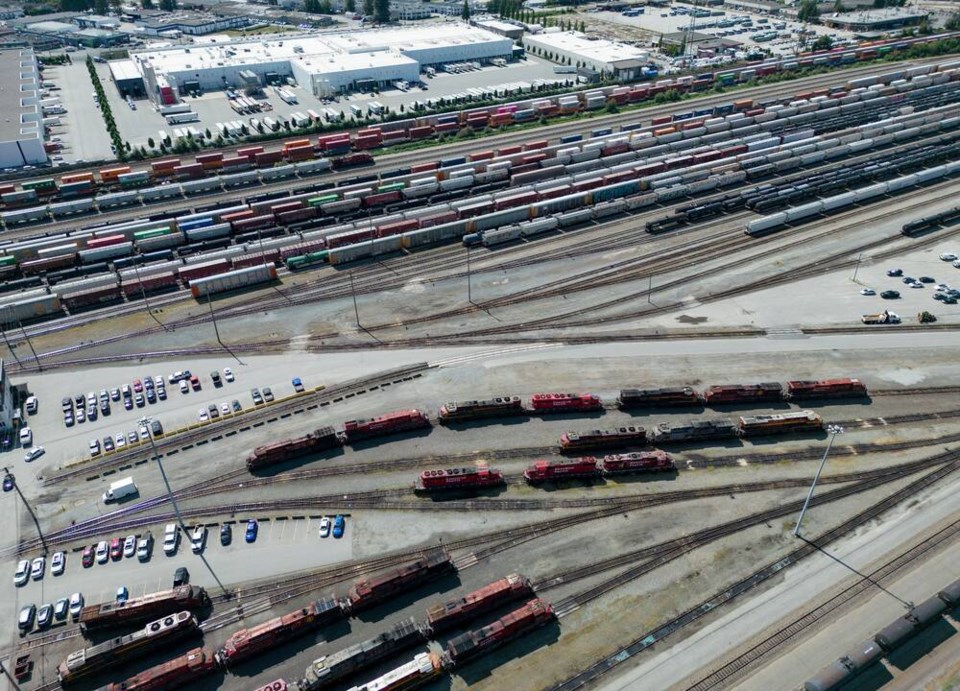The prospect of freight rail disruptions brought Vancouver Island’s vulnerability to the fore for the president of the Greater Victoria Chamber of Commerce.
Bruce Williams recalls the empty shelves during the pandemic and the major atmospheric river event in November 2021, saying supply chain challenges are exacerbated because of our island location.
“We have that added step of getting things to Vancouver and then bringing them over here.”
A work stoppage that began early Thursday at Canada’s two major railways ended first thing Monday after the Canada Industrial Relations Board ordered Canadian National Railway Co. and Canadian Pacific Kansas City Ltd. and their workers to resume operations. The dispute hasn’t been settled and the board has ordered binding arbitration. The union said it will challenge the board’s orders in court.
“The other thing that I thought about is that there’s going to be a great big lineup of container ships up and down the coast before too long, probably within a couple of days, [if] they can’t get through the Port of Vancouver.”
Some businesses would be compromised because they would not be able to obtain supplies and the situation could snowball because as financial screws tighten, workers could be temporarily laid off or have shifts cancelled, he said.
The vast majority of Vancouver Island’s food is imported. Goods largely come to Vancouver by ship, rail or trucks and then travel to the Island by barge or ferry.
“Maybe this is a reminder that we need to develop a stronger sense of food security.”
The Island could be more resilient when it comes to food and other sorts of products, Williams said.
“We can grow our economy to backfill so we are not so reliant on things that come from elsewhere.”
If a railway stoppage continued, residents would likely increasingly turn to goods produced on Vancouver Island, Williams said.
The prospect of being without the usual supplies “gets people to take a closer look at things that we can source locally, to shop local, consume local things first,” he said.
“It’s going to give us an opportunity to understand what’s actually at our doorstep and more easily accessible.”
Robert Lewis-Manning, executive director of the Greater Victoria Harbour Authority and former president of the B.C.-based Chamber of Shipping, said the biggest potential impacts arise because the dispute involves two railways at the same time, leaving little alternatives for many goods.
“You know, you can look at it through the lens of a consumer, you can look at it through the lens of a producer, exporter, importer, and either way you slice it, people have an expectation of goods being there to either produce other goods or for sale or for purchase.”
Lack of supplies would impair manufacturing. Crops need to be harvested and there is only so much storage, he said.
A rail stoppage would harm Canada’s reputation internationally because “buyers of Canadian goods are looking for a predictable supply chain. It’s a big factor.”
Under a continuing stoppage scenario, large ships carrying cargo would start to back up. A container ship may have left a port two weeks previously to drop off or load cargo. Some shipping contracts would be signed many months earlier with performance based on a specific date.
— With a file from The Canadian Press
>>> To comment on this article, write a letter to the editor: [email protected]




